- April 11, 2025
-
-
Loading

Loading
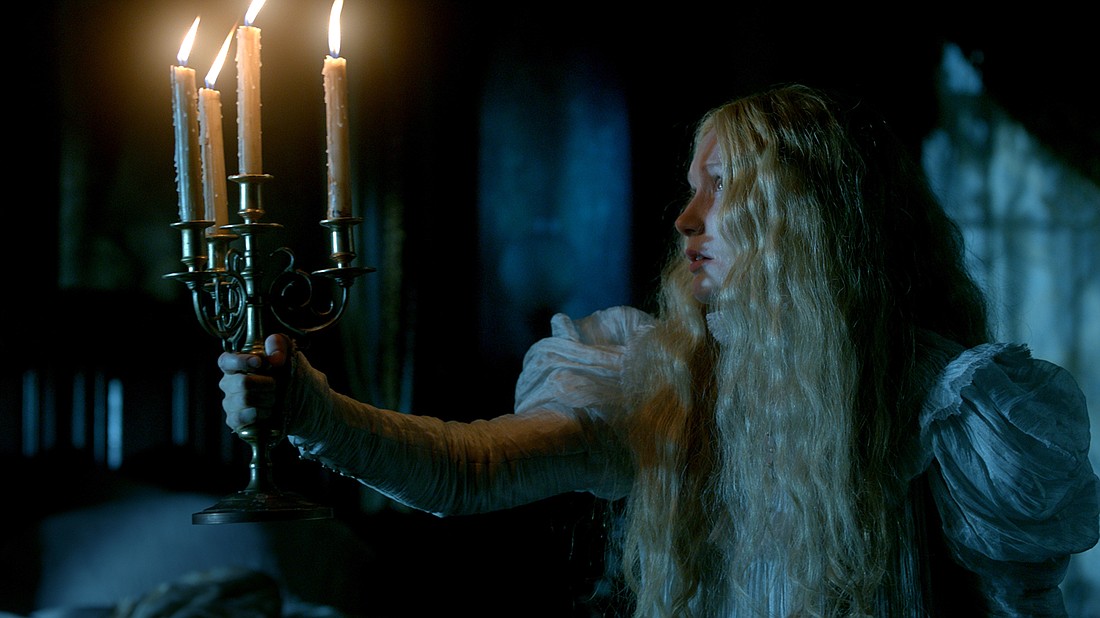
I don't have a ton of news or rants or anything interesting at all for an intro this week, so I want to invite you all to watch film critic David Ehrlich's annual top 25 countdown videos if you have not seen them. Actually, even if you have, they are worth a second (third, fourth, fifth) viewing.
Each year, Ehrlich edits together some of the best clips from the past 12 months and stitches them together, first in a montage and then individually by film, while songs from the year's films play over the top. The ranking of the films matters less than the power the overall thing has, reminding us of the power of the medium. Ehrlich is a talented editor; he chooses scenes from films that match together incredibly well and creates his own piece of art in the process.
They run about 13-15 minutes (the first few are shorter), and he's done them since 2011, so there are plenty to devour. I suggest you do, and I also suggest you take his recommendation to wear good headphones while you watch.
Here's 2018's, a personal favorite, to get you started:
HBO, rated R, 119 minutes
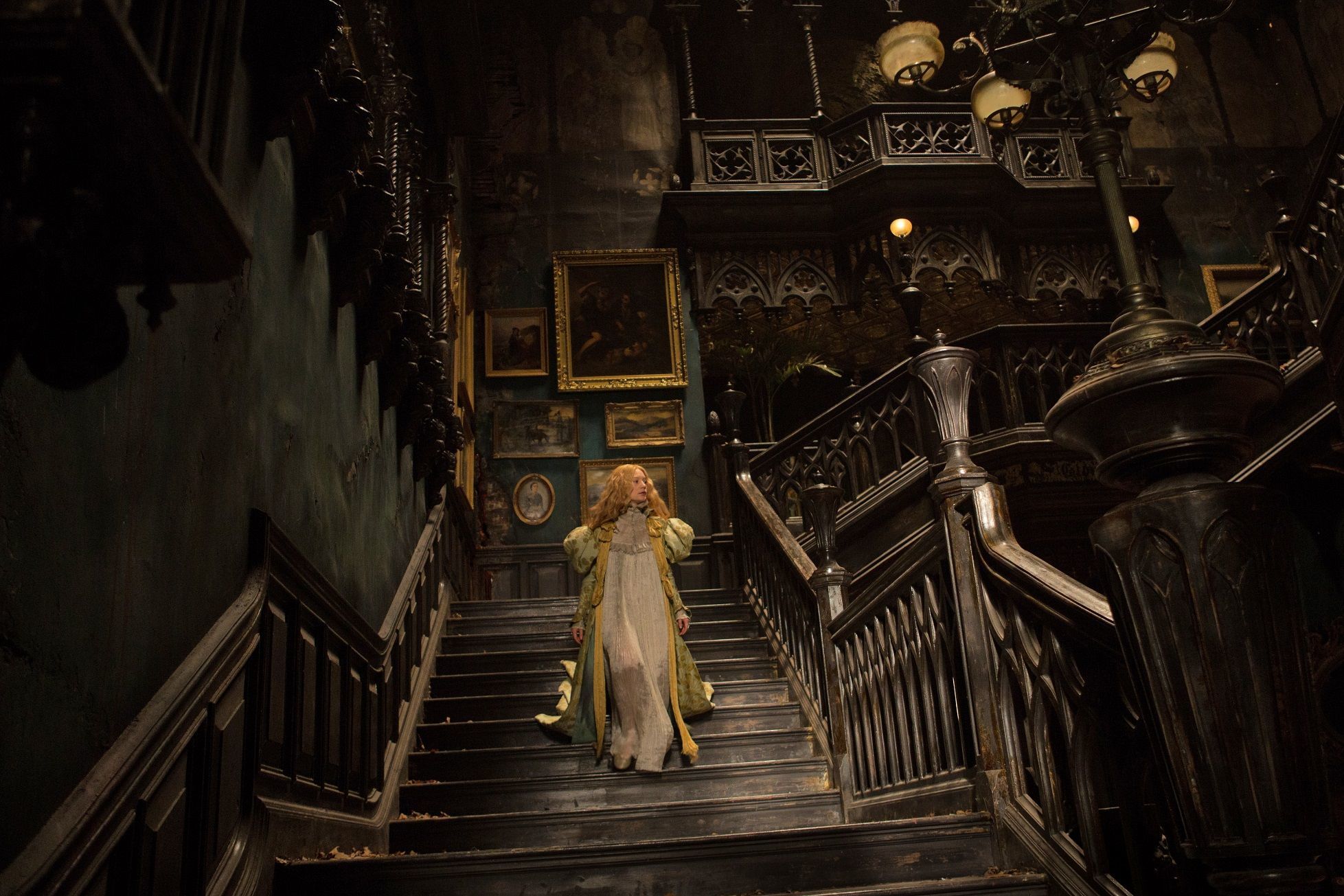
For all of Guillermo del Toro's mastery of the craft, subtlety can sometimes be lacking, especially in his more recent films. "Crimson Peak" starts with Mia Wasikowska's Edith telling the audience that the ghosts in the story they're about to watch are metaphors for the past. It's the first of a handful of times del Toro talks to the audience like that, and none of them are subtle.
In other movies, this might bother me. It probably should bother me in this one, which tells a classic story of love and loss and greed (and ghosts). It's a movie whose biggest twist is not having a twist — or at least not having the one it seemingly telegraphs — and it wraps all this in the framing device of Edith breaking through a patriarchal society by writing a novel.
It's "Little Women" for the emo and goth crowds, basically. It would be a perfectly fine if inessential film in the hands of someone else, but del Toro's visuals elevate it to must-see status for film lovers.
The first part of the film takes place in America, but it's the second part of the film, when Edith travels to England with her new beau, Thomas Sharp (Tom Hiddleston), and his sister, Lucille Sharp (Jessica Chastain), where things get going. The Sharps live in a towering mansion on top of a hill of red clay, an unstable base. When the clay shifts, the house shifts, which over the years has caused more damage than can quickly be repaired. As a result, the Sharps just kind of … gave up on fixing it. There are multiple holes in the roof, for example, which means each winter sees snow fall throughout the mansion.
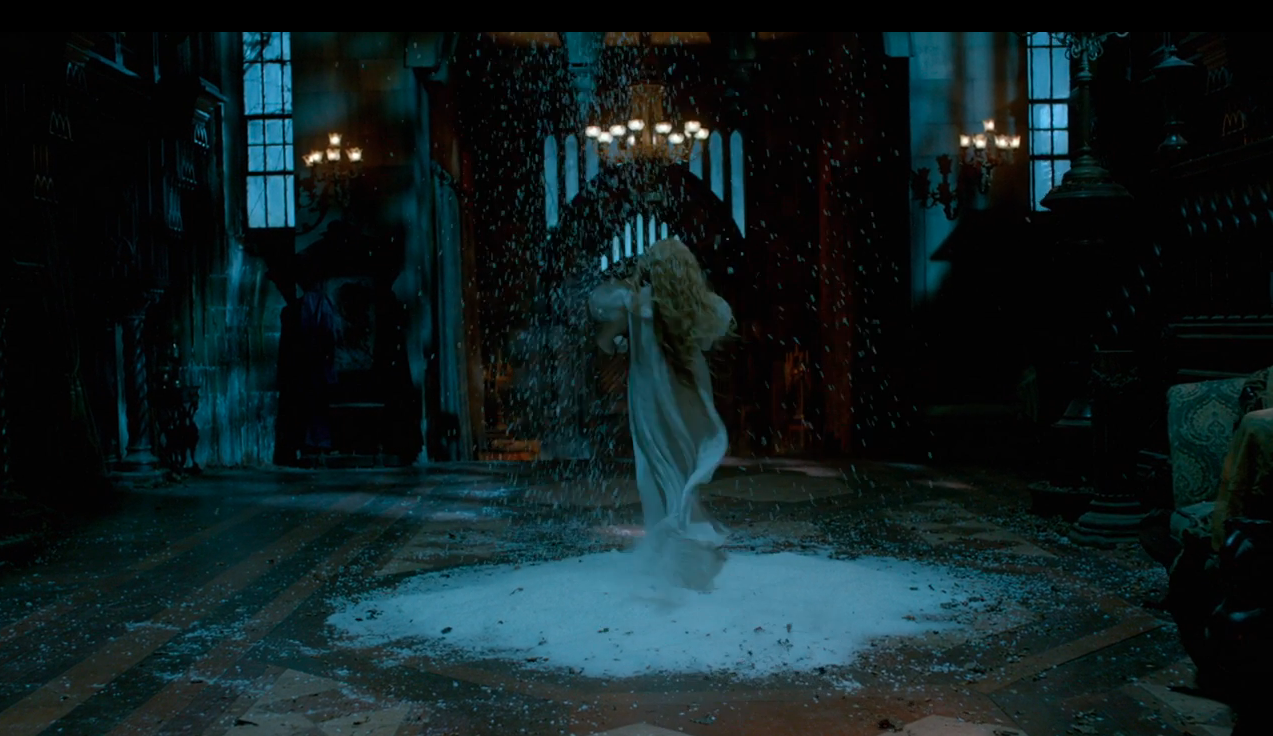
It's a gorgeous visual, one that catches the eye in the background of many scenes (and one that makes it difficult to show off the full effect via photograph). Outside the mansion, when the snow mixes with the red clay, giving the hill its titular name, it becomes just as gorgeous, albeit in a more "Who just bled to death all over the ground?" kind of way. The design of the ghosts is also a visual feast. No one creates creatures like del Toro, and here he goes with classic spectral skeletons (to match the classic feel of the story, I'm guessing) with bodily movements guaranteed to creep you out.
As you can probably guess, things don't go great for Edith once she reaches England. It turns out Thomas might have had ulterior motives for proposing to her. Lucille is starting to wig her out, too. And then there's the stuff she finds in the house's basement…
The story of "Crimson Peak" won't change your life, but it's a solid-enough Gothic romance for your eyes to feast on everything else: the scenery, the costumes and the actors themselves, all of whom do solid work, especially Chastain in a wonderfully wicked role.
Netflix/Kanopy, rated R, 99 minutes
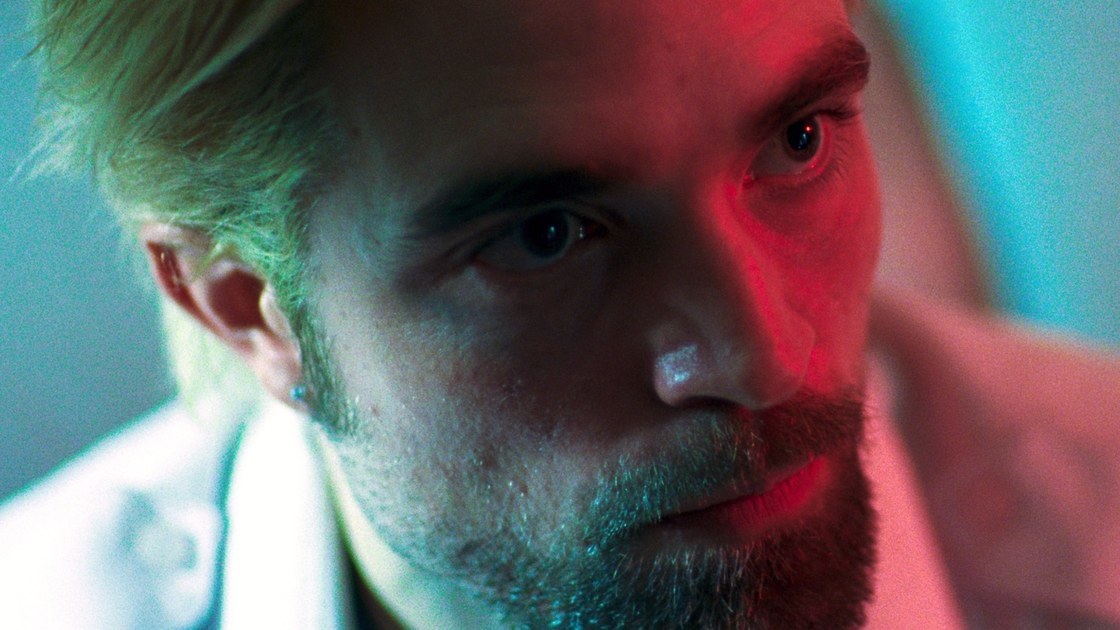
On the heels of GQ's batshit profile of Robert Pattinson in quarantine this week — if you haven't read it, you're missing out — I thought it would be fun to revisit one of Pattinson's most insane roles: the punk criminal Connie in the Safdie brothers' cult hit "Good Time."
Connie is a personification of ego — not in the humble/big-headed sense typically used but the Freudian one. He desires only his own satisfaction, his own happy ending, and will do and say anything to get it, other people be damned. He lets the id run wild, but he does it in cunning, ingenious ways, making him someone to be feared.
He also loves his family, specifically his brother, Nick, who has a developmental disability. But even those familial ties could never force our villain — and make no mistake, Connie is a villain — to put his brother before himself. When Connie convinces Nick to join him on a bank heist, it goes wrong, and Nick is arrested. This kicks off a string of events that occur over the course of one night, as Connie tries to simultaneously get Nick out of jail and save his own skin. This involves manipulation, drugs, seduction and, eventually, even death. Connie, for all his faults, is incredibly smart. Watching him get out of jam after jam is riveting, even if most of the tactics he uses are slimy at best. At worst? Well, Connie uses his whiteness to deflect blame and put the spotlight on others, sometimes subtly, sometimes not.
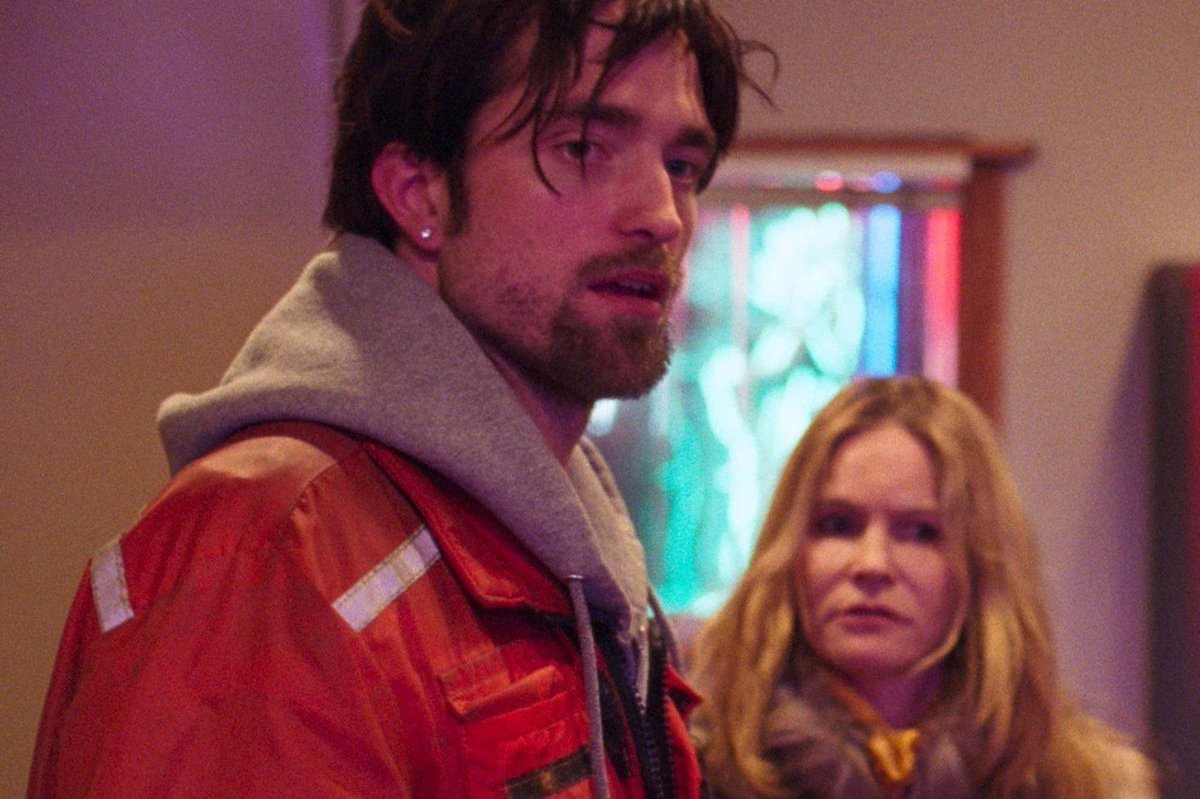
“Good Time” will make you uncomfortable. That is the point, in a lot of ways. This Letterboxd review can speak to that more eloquently than I. But it is also a showcase for Pattinson, a vessel for him to unleash his talent and become a walking, talking tornado of fiendishness. He sells the shit out of it.
I focused on Pattinson here, but the score for “Good Time,” created by Oneohtrix Point Never, is nerve-shattering and worthy of a viewing in its own right. It's also a fun way to see the Safdie's grimy style on full display, if you have yet to see a film of theirs. (This and "Uncut Gems" would be a heck of a back-to-back viewing experience.)